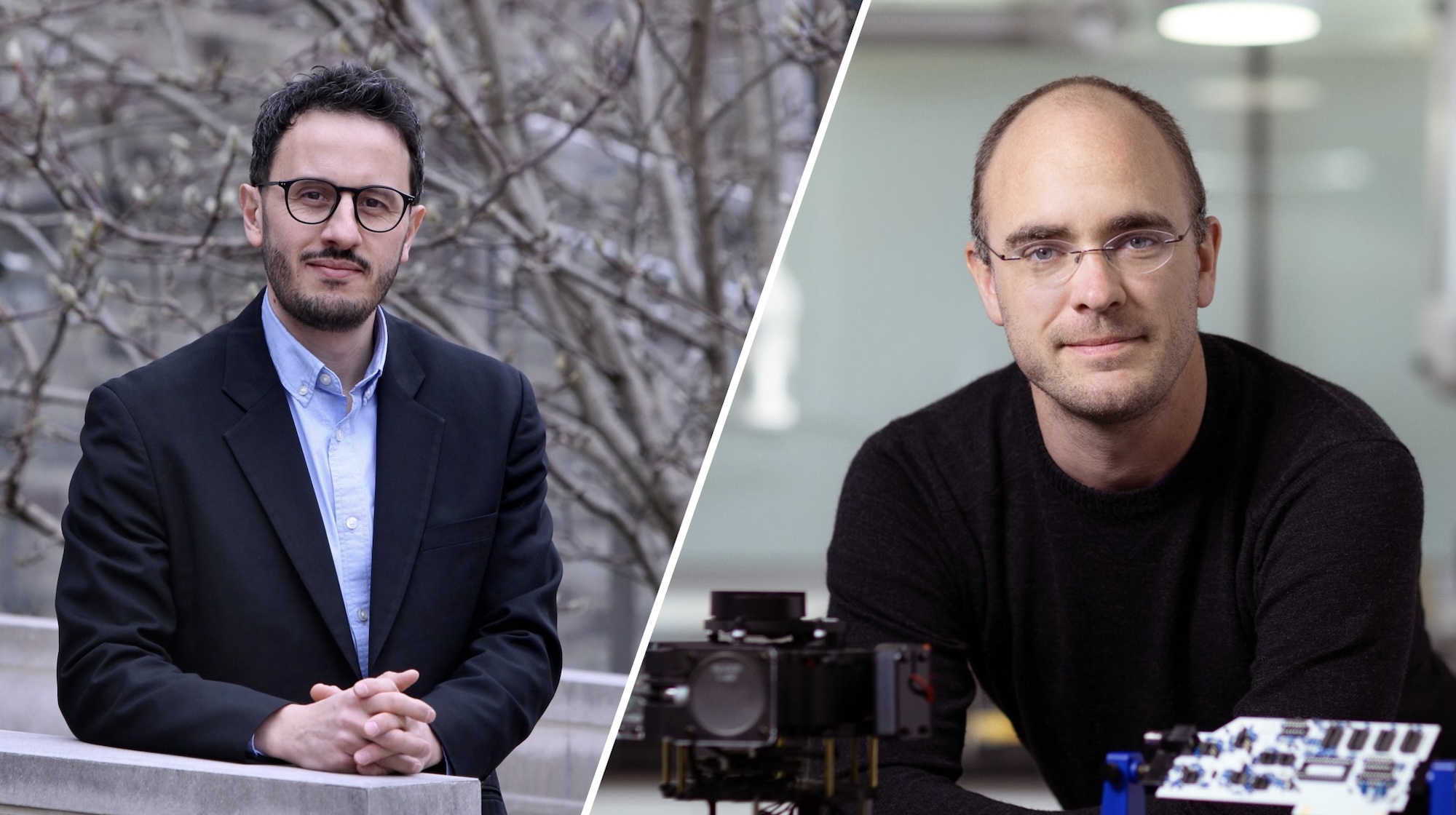August 10, 2025
Researchers at Princeton’s Program on Science and Global Security, Sébastien Philippe and Moritz Kütt, are stepping into faculty roles this summer: Philippe at the University of Wisconsin-Madison and Kütt at the University of Hamburg. After more than a decade at SGS, the two scientists will launch independent research groups focused on nuclear arms control, disarmament, and security policy, continuing the program’s legacy of combining technical expertise with policy engagement for a safer and more peaceful world.
Moritz Kütt, a visiting research fellow with SGS, started his position as associate professor for natural science and peace research at the University of Hamburg in July 2025. He is joining the faculty of the physics department, and will establish and lead the Hamburg Nuclear Disarmament Laboratory (HaNDL). The laboratory will be both a physical space as well as an intellectual environment to allow researchers to conduct innovative, interdisciplinary work to foster and enable the elimination of nuclear weapon programs.
Moritz Kütt first came to SGS in 2014 as a Visiting Student Research Collaborator, working with Alexander Glaser and Zia Mian. He repeatedly visited the program while being a PhD student at Technische Universität Darmstadt. After receiving his PhD in 2016 from Darmstadt, he returned to SGS full-time as a Postdoctoral Research Associate from 2017 to 2019. He then joined the Hamburg-based Institute of Peace Research and Security Policy as a Senior Researcher. Moritz Kütt continued to closely collaborate with SGS researchers, being appointed Visiting Research Fellow in 2021, regularly visiting Princeton since then. Key aspects of his work at SGS included the development of various verification technologies in collaboration with Alex Glaser. These include the Information Barrier Experimental (IBX) and the vintage-computing-based IBX II, both tools to be used for the verification of nuclear disarmament as well as Buddy Tags, motion sensing devices to be used as “license plates” for nuclear weapons. He also took part in efforts to bring Virtual Reality technologies to the research field, both through the development of a VR verification tool, as well as by studying nuclear weapon escalation mechanisms via the “Nuclear Biscuit” project in collaboration with SGS visiting researcher Sharon Weiner. With SGS co-director Zia Mian, Moritz Kütt worked on supporting the implementation of the Treaty on the Prohibition of Nuclear Weapons (TPNW) by proposing deadlines for nuclear weapon dismantlement.
SGS research scholar, Sébastien Philippe, will start a tenure track faculty appointment at the University of Wisconsin-Madison (UW) as an Assistant Professor of Nuclear Engineering & Engineering Physics effective August 18, 2025. Philippe will also be a Faculty Affiliate with the UW La Folette School of Public Affairs. He will start a new research group in nuclear security and arms control.
Philippe first joined SGS in 2012 as a graduate student in the Mechanical and Aerospace Engineering department. He was advised by SGS co-director Alex Glaser and earned his PhD in 2018. After a one-year postdoctoral fellowship at the Harvard Kennedy School, Philippe came back to SGS as an Associate Research Scholar. He was promoted to Research Scholar with a continuous appointment in 2023. At SGS, Philippe has collaborated with Glaser, Zia Mian, Sharon Weiner, Bruce Blair, Frank von Hippel, Rob Goldston, Tamara Patton, and Moritz Kütt on nuclear arms control and disarmament verification, fissile material and safeguards issues related to nuclear submarines, as well as proposing, establishing, and contributing to the scientific advisory structure of the new Treaty on the Prohibition of Nuclear Weapons (TPNW) among other topics. Philippe also went on developing new areas of research at SGS focused on the reconstructing the human and environmental legacy of French nuclear testing and U.S. nuclear testing as well as modeling the consequences of nuclear attacks on U.S. land-based nuclear missiles. He also launched new types of joint scholarly and journalistic collaborations with both French and U.S. investigative media. In 2025, he received the American Physical Society’s (APS) 2025 Joseph A. Burton Forum Award. The award recognizes outstanding contributions to the public understanding or resolution of issues involving the interface of physics and society.
Philippe and Kütt are both associate editors of the journal Science & Global Security, members of the SGS-hosted International Panel on Fissile Material, and the Scientific Advisory Group to the Treaty on the Prohibition of Nuclear Weapons, co-chaired by Patricia Lewis and SGS co-director Zia Mian. They plan to continue their long-standing collaborations with SGS, extend the reach of its core research agenda, and train new students and policy experts in reducing the threats of nuclear weapons and other technologies to international peace and security.
